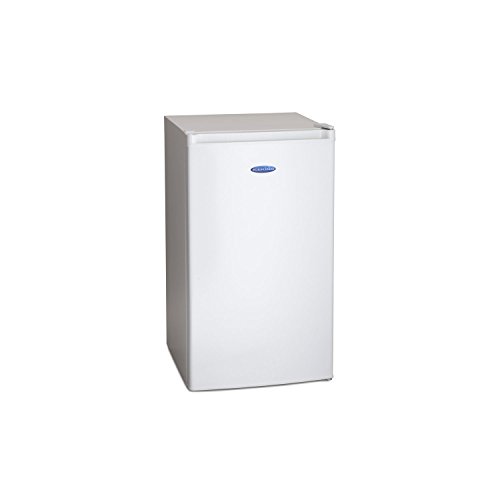Understanding Refrigerators: A Comprehensive Guide
Refrigerators, frequently described as fridges, are vital home appliances in contemporary homes and commercial establishments. They play a vital role in preserving food and beverages, guaranteeing they stay fresh and safe for usage. Throughout the years, developments in innovation have transformed the modest fridge into a sophisticated device that comes geared up with various functions and functionalities. In this article, we will check out the different kinds of refrigerators, crucial functions to think about when acquiring one, and maintenance suggestions to extend its lifespan.
Kinds of Refrigerators
When it concerns fridges, there is a multitude of options available in the market. Each type accommodates various requirements and preferences, making it important for customers to comprehend their attributes. Below is a summary of the primary kinds of refrigerators:
| Type | Description | Pros | Cons |
|---|---|---|---|
| Top-Freezer | A traditional style with a freezer compartment above the refrigerator section. | Economical, familiar design | Limited storage space for fresh food |
| Bottom-Freezer | Functions a freezer compartment located at the bottom for simpler access to fresh food. | Ergonomic style, more fresh food space | Freezer may need flexing to access |
| Side-by-Side | Split vertically, with the freezer on one side and the refrigerator on the other. | Convenient access to products, adequate storage area | Narrow storage bins |
| French Door | Integrates a bottom freezer with double doors for the refrigerator area, using flexibility. | Stylish style, easy access to foods | Higher price point |
| Compact Fridge | Smaller sized systems developed for minimal spaces such as dormitory spaces or offices. | Space-efficient, portable | Restricted storage capacity |
| Smart Fridge | Geared up with Wi-Fi connection and touch screens, allowing users to manage groceries digitally. | High-tech functions, energy-efficient | Pricey and might require updates |
Secret Features to Consider
When buying a refrigerator, it's vital to evaluate particular functions to guarantee it fulfills your requirements. Here are essential elements to consider:
Size and Capacity
- Make sure the fridge fits your kitchen space.
- Think about the overall capability based upon your household requires.
Energy Efficiency
- Search For ENERGY STAR rankings to ensure energy performance, which can conserve on electricity costs.
Cooling Technology
- Examine if the fridge utilizes conventional cooling, dual cooling, or advanced innovations like inverter compressors for better efficiency.
Storage Options
- Assess shelving versatilities, crisper drawers, and adjustable compartments for effective storage and organization.
Complete and Design
- Choose a surface (stainless-steel, matte, and so on) that complements your kitchen area décor. Keep in mind to think about the overall style, whether sleek or standard.
Smart Features
- Think about clever fridges if you desire functions like temperature level control via an app, inventory tracking, and notifications when the door is exposed.
Upkeep Tips for Refrigerators
Appropriate maintenance can substantially extend the life of a refrigerator. Here's a list of important upkeep practices:
- Regular Cleaning: Keep the interior tidy and totally free of spills and ended products. Month-to-month cleaning is recommended.
- Examine Temperature Settings: Ensure the refrigerator is set between 35 ° F and 38 ° F, while the freezer ought to be at 0 ° F to preserve food safety.
- Clean Condenser Coils: Dust and particles can build up on the coils, reducing effectiveness. Cleaning them every 6 months is a good idea.
- Inspect Door Seals: Regularly check the door gaskets for wear and tear. Cheap Fridges For Sale is important for preserving temperature.
- Thawing: In older designs, thaw the freezer routinely to avoid ice accumulation. Best Price Fridge -day fridges come with auto-defrost functions.
- Keep Vents Unobstructed: Ensure air flow is not obstructed by items, which can hinder cooling efficiency.
- Monitor Food Storage: Properly store foods and avoid overwhelming the fridge, which can restrict airflow.
Frequently Asked Questions (FAQs)
How long do refrigerators usually last?
- Many refrigerators last between 10 to 15 years, depending upon the design and upkeep.
What can I do to keep my fridge running effectively?
- Regular cleansing, checking temperature level settings, and keeping appropriate ventilation can enhance efficiency.
Is a smart fridge worth the financial investment?
- If you typically cook, captivate, or require innovative features such as remote temperature level control and stock tracking, the investment may be rewarding.
Can my refrigerator cause high electrical power bills?
- Ineffective models, bad upkeep, or leaving the door open can cause increased electrical power intake.
What's the distinction between a top-freezer and a bottom-freezer model?
- A top-freezer fridge has a freezer area above the fridge, while a bottom-freezer model has a freezer drawer at the bottom for ease of access to fresh food.
Refrigerators are vital in modern-day cooking areas, serving not only as storage for perishables but likewise showing advancements in innovation and benefit. With the myriad alternatives offered, comprehending the types, functions, and upkeep can empower customers to make educated decisions. Appropriate care can guarantee that a fridge stays efficient and functional for years, eventually boosting the total food storage experience in the home. Whether choosing a trendy French door model or a compact fridge for a studio apartment, customers today are geared up with the understanding to choose the right appliance for their needs.

